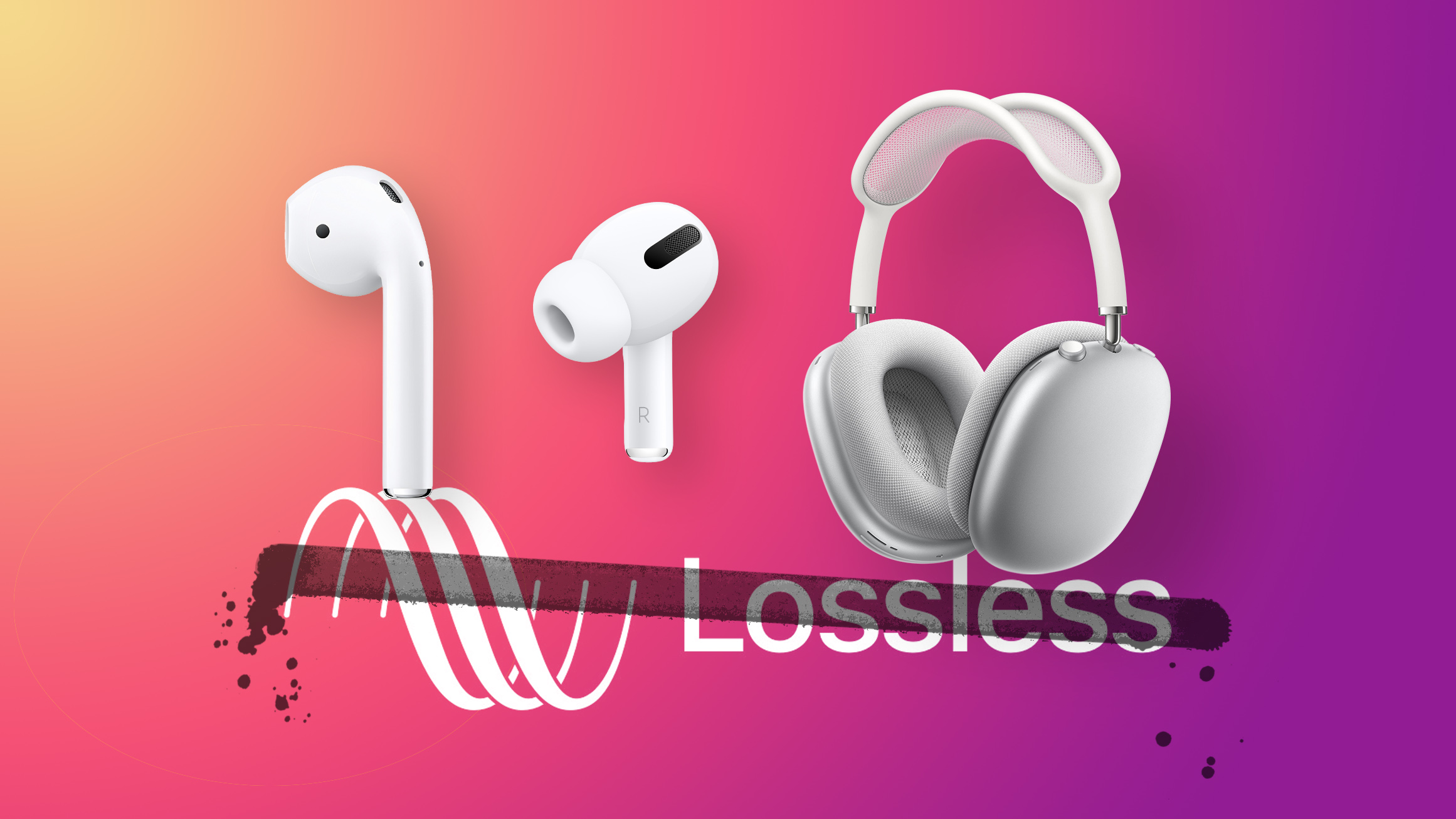![]()
Apple today announced that starting in June, Apple Music songs will be available to stream in Lossless and Hi-Resolution Lossless formats, but lossless audio won't be supported on the AirPods, AirPods Max, or AirPods Pro.
Apple's Lossless Audio is encoded as Apple Lossless Audio Codec files, with lossless quality ranging from 16-bit 44.1 kHz playback to 24-bit 48 kHz playback and Hi-Res Lossless offering 24-bit 192 kHz quality.
AirPods, AirPods Pro, and AirPods Max are limited to the Bluetooth AAC codec when paired with an iPhone, and won't be able to stream Apple Music lossless files, Apple
confirmed to T3.
Apple did not mention AirPods compatibility in its press release announcing the new functionality, and on its website, Apple confirms that lossless audio can be listened to on an iPhone, iPad, Mac, or Apple TV, and
T3 also says that HomePod is compatible even though it wasn't listed in Apple's announcement.
Apple's lossless audio is less compressed and offers up a more accurate version of the studio recording process, for music that sounds as it was intended by the artist. Lossless audio provides a wider dynamic range to bring out the detail and realism in music.
Hi-Res Lossless will require a USB digital to analog converter or similar equipment, but will provide the best sound experience. Listening to lossless audio on an iPhone will require wired headphones and it's possible an additional dongle will be needed to get the best sound quality. AirPods Max will also
not support lossless audio over the Lightning cable, Apple told Micah Singleton.
While the AirPods, AirPods Max, and AirPods Pro do not support lossless audio, they do support Spatial Audio with Dolby Atmos, and by default, Apple Music will automatically play Dolby Atmos tracks on all AirPods and Beats headphones with an H1 or W1 chip.
With Spatial Audio support, artists will be able to create immersive experiences that provide fans with multidimensional sound and clarity.
Lossless Audio and Spatial Audio are being added to Apple Music at no charge, so both new and current subscribers will get these features for the standard $9.99 per month (individual), $4.99 per month (student), or $14.99 per month (family) pricing.
Article Link:
AirPods, AirPods Max and AirPods Pro Don't Support Apple Music Lossless Audio





